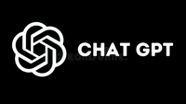|
|
|
|
|
|
|
|
|
Dear reader,
Welcome to The Director's Dilemma October 2023
Each month this newsletter looks at a real-life board scenario and considers a range of responses. The scenarios are de-identified to protect the individuals concerned. This month we advise a director who has taken on the responsibility for writing a policy governing the acceptance of sponsorship, gifts and hospitality.
Of course, scenarios in the newsletter are general, I work with boards and directors as a confidential mentor to help them beat challenges and seize opportunities. If that sounds like something you would like, please call me.
To read this email in a web browser, go to www.mclellan.com.au/newsletter.html and click on 'read the latest issue'. I hope you will enjoy the latest dilemma:

Hugh is a director on the board of a government owned company. Recently another company in the government sector came under intense criticism because the CEO approved gifts to executives. Several years ago, another company came under suspicion of corruption for after staff were seen dining with suppliers who later received large contracts.
In the past couple of months Hugh is aware that his company has sponsored a conference in its hometown and some of the staff have been invited by a supplier to attend an overseas conference. It appears the supplier would like the staff to present a paper about the project that the supplier recently completed for the company.
Hugh spoke with the CEO - his company has a very permissive approach to contact between directors and staff as long as the chair is informed of the intention and topic beforehand. In that conversation it became apparent that the company does not have a policy on what sponsorships they will grant or accept, or on what gifts and hospitality the staff may give or receive. The CEO agreed that this was a potential risk and that a policy would be a great idea. The only problem is that it should probably have been written yesterday and there is no expertise on the staff with these issues.
Hugh agreed that he would have a go at creating a first draft.
What should Hugh consider putting into the policy and how should he engage with the board and executives in the policy development process?
|
|
|
|
Nigel's Answer

This is a multifaced issue and could blur the lines between operational and director responsibilities.
Hugh should be disappointed that the CEO has not considered that the proposed action creates a conflict of interest for the company and it could be perceived as corruption externally. As such, any action which has been taken must be stopped immediately to prevent any reputation damage.
Hugh should advise the chair and explain that the company has no Ethics Policy, and this would also flag the need for the board to consider a broader review of risk and risk mitigation across the company since clearly it is deficient. The company needs a clear Ethics Policy and within that policy should be considerations for gifts, sponsorships and hospitality.
Hugh must also inform the chair that he is writing the Ethics Policy as part of his existing role as a company director. As such no additional remuneration will be charged. The policy must be considered to be actionable by the board, executive and employees. Hugh would initially consult with any external guidelines that may be present by the Government agency responsible for the government owned company. It is likely that an Ethics policy already exists and as such that one could be modified to suit the company.
Once the policy is developed it must be implemented, once approved by the board, so that staff and executive are fully aware of the concerns that gifts, sponsorships and hospitality can have on the company.
Nigel Hennessy is an experienced director on listed and private company boards. His current directorships include: Hearnshaw & Partners (MD), Aglytrica (NED), Project Alpha+ (Director), Farmanco Management Consultants (Deputy Chair), and the Australian Institute of Music (Deputy Chair). He is based on the Gold Coast, Queensland, Australia.
|
|
|
|
Julie's Answer

Hugh must be scrupulously clear - is he acting because of another company's misfortune, or because he has misgivings about his own company's actions?
Either way Hugh must speak with his chair before he crosses a line between board oversight and management actions. His chair may guide him about how to proceed.
If there are any doubts about the company's previous actions, the board must commission an independent report and may consider standing down the CEO whilst this is completed.
The lack of a policy about what staff may give or receive is a serious risk; especially for a government enterprise with high public interest in allegations of corruption, or misuse of funds.
The board must decide what sort of sponsorships, gifts, and hospitality the company might give or receive. Hugh should consider:
-
the company's mission/strategy and how gifts, sponsorship and hospitality might advance or hinder attainment of objectives
-
who are likely donors and recipients, and what are the benefits of these relationships
-
what are appropriate levels or values of gifts, sponsorships or hospitality, and who is authorised to approve their grant or receipt
-
should individuals keep gifts or are they company property
-
how will processes be documented, overseen, and audited, and
-
how to ensure that the policy is fair to all staff without favouring those who have relationships with donors or recipients.
If there are no suspicions, Hugh can base his policy on what management already do. If he suspects current processes are lax, Hugh can seek examples from the relevant government department to use as guides.
Julie Garland McLellan is an experienced non-executive director and board advisor based in Sydney, Australia.
|
|
|
|
Lauren's Answer

Hugh should involve the top HR executive and legal counsel as he works with them to draft a Gifts and Entertainment Rules policy that measures and records these activities and sets ground rules for what is and is not acceptable.
The goal of the policy should be to preserve integrity and public confidence by avoiding real or perceived conflicts of interest. The policy needs to set limits on what is reasonable for gifts and entertainment and have a clear approval process. Specific pre-approval requirements and instructions should be a part of the policy. Descriptions of what constitutes a "gift" and what is considered "entertainment" should be documented with a defined value for the upper limit spelled out. Sample policies from other commercial and governmental organizations could be collected to inform the new policy.
The board should be briefed on the situation, the new policy, and the training plan. Since behavior may be underway that violates the new policy, these behaviors should be addressed by the board and the CEO.
Beyond creating the policy, management and the board need to ensure that the policy and principles are widely communicated and become embedded in the business practices. The board should also add the item to the board agenda to ensure that they are tracking the effectiveness of the policy and ensuring its on-going implementation.
Lauren E. Smith is Managing Director and Co-Practice Leader, Board of Directors at Diversified Search Group / AltoPartners USA. She was named to the 2022 National Association of Corporate Directors (NACD) Director 100 as a top governance professional in the USA. She is the current Chair Governance and immediate past President of the NACD Florida Chapter. She is an NACD Board Leadership Fellow and an NACD Certified Director.
|
|
|
|
Chat GPT's Answer

Hugh should consider the following to engage with the board and executives in the policy development process:
Consultation: Involve key stakeholders, including board members and executives, in the policy drafting process. Seek their input and address their concerns.
Expertise: If the company lacks expertise in this area, consider bringing in external consultants or legal experts to provide guidance during policy development.
Board Approval: Present the draft policy to the board for review and approval. Ensure that the board understands the importance of the policy for mitigating risks and upholding the company's reputation.
Employee Input: Solicit feedback from employees at various levels to ensure the policy is practical and aligns with the company culture.
Training: Plan training sessions to educate employees, especially executives, on the new policy once it is approved.
Monitoring and Review: Establish a mechanism for ongoing monitoring and periodic review of the policy's effectiveness in preventing ethical breaches.
By developing a robust policy and involving all relevant stakeholders, Hugh can contribute to building a culture of ethics, transparency, and compliance within the company while safeguarding its reputation.
|
|
|
|

Where is Julie? This issue of the newsletter is written for you in Abu Dhabi, where I am delivering director education for I E Business School and a large sovereign wealth fund.
In late August and early September I was touring Europe and catching up with friends and clients there. I will be back in Australia soon, refreshed and re-energised ready for three more Writing Better Board Papers courses in Sydney, Brisbane, and Melbourne.

Improve your Board Papers - Are you less than 100% happy with the papers that your board receives? I have recently updated my one-day training course on Writing Better Papers.
New content now includes best practice on preparing papers for use with board portals, writing compelling recommendations, and the process for handling questions prior to the board meeting. If you want to attend, I shall be hosting a public course in Sydney on 18 October, in Melbourne on 19 October and in Brisbane on 15 November. Email me for more details.
If you would prefer an in-house course for your executive team, please call or email me, or ask your training department to contact me at julie@mclellan.com.au to find a date that suits.
Video resources - I post short video insights on LinkedIn. They disappear after a few days. You might like to visit (and please subscribe to) my YouTube channel to see the videos whenever you want to watch them. Let me know if there are any topics you would like to see addressed and I will see if I can add a video to the channel for you.
Board review - Every board - just like every other team - needs to measure its performance if it hopes to improve. When your board next needs to conduct a performance evaluation or a governance review, please remember that I would be delighted to help. If I can help, please contact me at julie@mclellan.com.au.
Inspirational quote for October

Sometimes we need to step up and give it our best shot. Even if we have never done it before and even if we know that it isn't usually done. Think carefully and then play to win.
A note on names - A few readers have asked me where I find the names for the protagonists in each case study; I 'borrow' them from people I meet or things that I read. Hugh is a boy's name of British origin and is the English-language variant of German boy names like Hugo and Uwe. Hugh means “soul,” “mind,” and “intellect.” Our Hugh will need to display his deep feeling for the company as well as some intelligence (both social and linguistic/organisational) while working his way through this dilemma.
This newsletter - If you have any ideas for improving the newsletter please let me know. If you are reading a forwarded copy, please visit my website and sign up for your own subscription.
Suggestions for dilemmas - Thank you to all the readers who have suggested dilemmas. They are greatly appreciated. I will answer them all eventually. I could not write this newsletter without your help and without the generous help of all the experts who respond each month to the case studies.
Be a contributor - if you would like to attempt a response to the dilemmas for publication you will be most welcome. Simply reply to this email and let me know. I am always on the lookout for new talent from around the world so please reach out if that sounds like something you could do. I am also always grateful for the generous sharing of the current and past contributors. I couldn't create such an engaging newsletter without their help.
Let's connect - I use LinkedIn to share information about boards and directorship with my friends and acquaintances. If you use LinkedIn and we are not yet connected I will welcome a connection from you. You can find me at linkedin.com/in/juliegarlandmclellan.
Farewell until the next issue due 1 November. I look forward to greeting you again then.
Enjoy governing your companies, it is a privilege!
Best regards,
Julie

Main photo by Ron Lach at Pexels.com
Quote Illustration by Keitchy Sanchez for Julie Garland McLellan
Disclaimer: The opinions expressed above are general in nature and are designed to help you to develop your judgement as a director. They are not a definitive legal ruling and do not constitute legal advice. Names and some circumstances in the case study have been changed to ensure anonymity. Contributors to this newsletter comment in the context of their own jurisdiction; readers should check their local laws and regulations as they may be very different.
Privacy: I am privileged to have your contact details and keep them as safely as possible. I will alert you if they are ever accessed by any unauthorised person. The technical staff at ayuda help with publishing and issuing the Director's Dilemma and have access so they can send the newsletters to you. I do not sell your details to anyone; they are kept only for the intended purpose - sending you this newsletter and helping to build the judgement of company directors by providing a safe way to consider potential responses to real life events.
|
|
|
|
|
|
|









